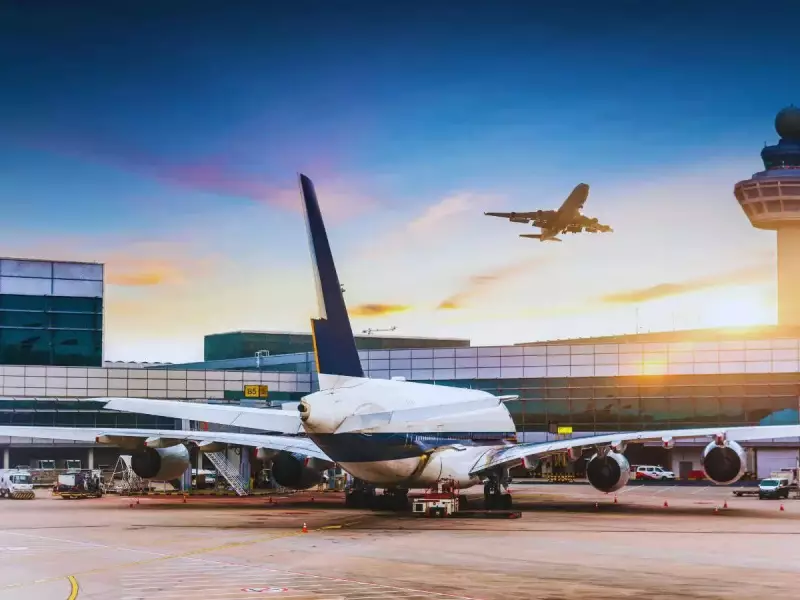
The United States is witnessing its worst single-day air travel disruption in recent history, with massive flight delays and cancellations crippling the nation's aviation system. This unprecedented crisis, directly linked to the ongoing federal government shutdown, has left thousands of travelers stranded and airlines scrambling to manage operational chaos.
Massive Disruption Across US Airports
By Sunday night, the United States had recorded over 10,000 flight delays and more than 3,200 cancellations, according to international media reports. The disruption affected flights departing, arriving, or simply overflying US airspace, with some of the country's busiest aviation hubs experiencing severe operational strains.
Major carriers like Delta Air Lines reported that 52% of its main-line flights were affected by the incident, with planes either being delayed or cancelled entirely. The situation created a domino effect of chaos as passengers found themselves unable to reach their destinations, with airport terminals turning into scenes of frustration and confusion.
Root Cause: Staffing Crisis and FAA Mandates
The primary driver behind this travel meltdown is a critical staffing shortage among air traffic controllers and other essential federal aviation personnel. The government shutdown has exacerbated this situation, with many employees working without pay, leading to increased absenteeism and early retirements.
The Federal Aviation Administration (FAA) has implemented a 4% reduction in flights at 40 major US airports starting last Friday. The agency has plans to escalate this reduction to 10% or more if the government shutdown continues. Meanwhile, air traffic controllers and Transportation Security Administration screening officers continue working without compensation, creating additional pressure on an already stressed system.
US Transport Secretary Sean Duffy has warned that up to 20% of flights might be cut across the system if the staffing shortfall deepens further, indicating the potential for even more severe disruptions ahead.
Airport Strain and Safety Concerns
Airports in prime metropolitan regions are showing rapid signs of strain, according to CBS News reports. Multiple FAA facilities have reported numerous "staffing triggers" in recent days, forcing the FAA to slow down or completely ground air traffic to maintain safety standards.
The staffing crisis has reached alarming levels at some facilities. Several control towers are experiencing up to 81% of controllers being absent, particularly in the New York area. Retirement rates among controllers have skyrocketed from "four per day" before the shutdown to "15-20 per day" currently, according to Secretary Duffy.
At one large hub, a shocking 18 out of 22 controllers reportedly failed to report to work on a single day. These staffing issues are directly contributing to the wave of flight cancellations and delays affecting travelers nationwide.
Impact on Travelers and the Aviation Industry
The timing of this disruption couldn't be worse, coinciding with the approaching US holiday travel season, notably Thanksgiving. Travelers should expect significant schedule disruptions, and even confirmed tickets don't guarantee departure as flights may still be delayed or cancelled unexpectedly.
Airlines are proactively adjusting schedules, reducing capacity, and rerouting flights to comply with FAA directives. Experts recommend that passengers check their flight status frequently, allow extra time for layovers, and prepare alternative travel options. Smaller regional airports may be particularly vulnerable with fewer resources to manage cancellations.
The impact extends beyond individual travelers to the entire aviation ecosystem. Airports, airlines, and local economies that depend on air connectivity are all facing potential harm. Safety officials have raised concerns that reduced staffing and increased fatigue among critical personnel could compromise system resilience and safety protocols.
For now, travelers must remain extra vigilant, flexible, and prepared for ongoing disruptions. The window of disruption is likely to widen unless the underlying staffing and funding issues are resolved quickly through an end to the government shutdown.





